I am trying to build a JavaScript to Native communication. For that purpose I need to execute dynamically a method on some class when JavaScript calls it.
I have a problem with NSInvocation getting the return value. When the getReturnValue is used the app crashes due to zombie. The zombie is indicated to be coming from the invocation called method's return value.
If I comment out the [invocation getReturnValue:&result]; line the app doesn't break.
The test method I am currently calling returns and (NSString *)
If I make the invoked selector method implementation return a literal string like @"firstsecond") the app doesn't break as well.
Why does it need a reference to it any way when the invocation method has already been executed and a string is returned. Isn't the returned string copied to the id result.
- (void)userContentController:(nonnull WKUserContentController *)userContentController didReceiveScriptMessage:(nonnull WKScriptMessage *)message {
if ([@"Native_iOS_Handler" isEqualToString: message.name]) {
NSArray *arguments = [message.body valueForKey:@"arguments"];
NSNumber *callbackID = [message.body valueForKey:@"callbackID"];
NSString *APIName = [message.body valueForKey:@"APIName"];
NSString *methodName = [message.body valueForKey:@"methodName"];
id classAPI = [self.exposedAPIs objectForKey:APIName];
SEL methodToRun = [classAPI getSelectorForJSMethod:methodName];
NSMethodSignature *methodSignature = [classAPI methodSignatureForSelector:methodToRun];
NSInvocation *invocation = [NSInvocation invocationWithMethodSignature:methodSignature];
[invocation setTarget:classAPI];
[invocation setSelector:methodToRun];
id result;
[invocation invoke];
[invocation getReturnValue:&result];
NSLog(@"%@", result);// output: firstsecond
}
}
//the selector in this case is this
-(NSString*)getFoo{
// Why is this a zombie????
return [NSString stringWithFormat:@"%@%@", @"first", @"second"];
// This works:
//return @"fristsecond"
}
Although the selector in Instruments is different the result is the same. From this picture I understand what I have told you. I have no experience whit Instruments.
